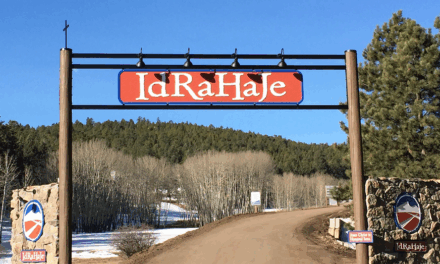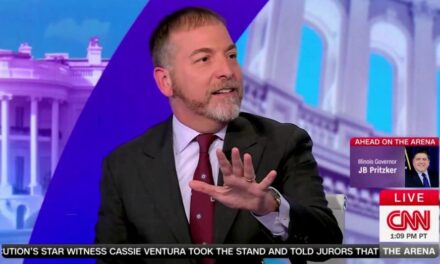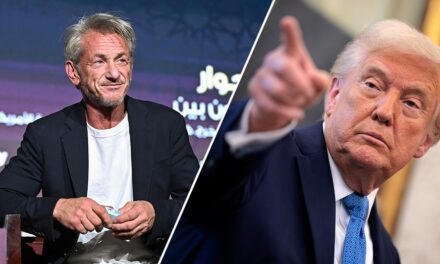In a bold move that has garnered significant attention, actor Jamie Kennedy has publicly defended a fellow actress facing backlash for her outspoken pro-Palestinian views. He expressed his support during a recent interview, highlighting the complexities of navigating artistic expression and personal beliefs in an increasingly polarized environment.
The actress in question has become the target of social media outrage and calls for cancellation due to her outspoken comments regarding the Israel-Palestine conflict. Many of her critics argue that her views, seen as controversial or divisive, should not align with the values of the entertainment industry. However, Kennedy has taken a stand against this tide of criticism, urging for an open dialogue and understanding rather than ostracization.
During the interview, Kennedy spoke candidly about his own experiences in the film industry, revealing how starring in a pro-life film had sparked a significant change in his personal perspective. He asserted that taking on such roles challenges artists to confront their own beliefs and reassess their values, a journey he believes all actors should undertake. This sentiment resonated deeply with him, especially as he navigates the tricky waters of public opinion and personal belief.
“When you play a character, you’re not just playing a role; you’re also opening up new avenues of thought,” Kennedy stated. “I’ve realized that every film is an opportunity for growth, and it’s essential for us as artists to explore topics that might not align with the mainstream narratives.” His comments suggest that he has a deep understanding of the pushback faced by creatives who challenge the status quo, especially on politically charged issues.
The backlash against the actress highlighted a broader trend in Hollywood, where public figures often face consequences for expressing opinions that diverge from those held by the majority. The rise of social media has made this phenomenon even more pronounced, as controversies can spiral out of control, leading to swift calls for accountability or cancellation.
Many believe that the culture of cancellation not only stifles discourse but also breeds an environment of fear among artists. Kennedy’s defense of his colleague brings to light the dangers of a society that leans heavily toward punitive responses rather than constructive debates. He emphasized the need for empathy in discussions related to sensitive topics like the Israeli-Palestinian conflict, remarking, “We need to listen more; it’s hard to understand a situation fully if we’re not open to differing viewpoints.” He believes that true progress can only be achieved through understanding and dialogue, rather than division.
Kennedy’s views also sparked discussions about the responsibility of actors and creators in today’s socio-political climate. With the weight of public opinion constantly hanging over them, many artists find themselves at a crossroads: should they conform to societal expectations, or should they stay true to their beliefs, regardless of the consequences? Kennedy stands firmly on the side of authenticity, arguing that the arts should reflect diverse experiences and ideologies, even if they provoke discomfort among some audiences.
Moreover, Kennedy’s transformation through his role in the pro-life film underscores the idea that immersion in a role can forge new perspectives on complex issues. He elaborated, “Acting is an exploration of humanity; it’s about connecting with different life experiences, often those we disagree with most.” His personal evolution serves as a poignant reminder of the transformative power of storytelling and its ability to foster empathy and understanding, particularly in a time marked by division.
The standing ovation Kennedy received for his remarks suggests that there are many in the industry who share his vision for a more inclusive and understanding dialogue. Fans and colleagues alike have begun to rally behind the notion that artists should have the freedom to express their thoughts and explore challenging narratives without fear of retribution. His stance might encourage other industry veterans and newcomers to adopt a more courageous approach to their work as well.
As the conversation surrounding the Israeli-Palestinian conflict continues to generate heated debates, Kennedy’s intervention is a reminder that the arts can provide a crucial platform for expression and discussion. He believes art plays an essential role in raising awareness, encouraging empathy, and bridging gaps between differing worldviews.
The backlash against the actress may have sparked controversy, but it also demonstrates a crucial moment of reflection regarding society’s tolerance for differing perspectives, especially in a time when public opinion can shift with lightning speed. Kennedy insists that there must be room for dissenting voices at the table, adding, “Cancel culture is dangerous; it doesn’t allow for growth. We are human; we’re all trying to figure this out.” His words resonate with many who sense a growing anxiety surrounding free speech in creative fields.
In addition, Kennedy’s defense raises pertinent questions about accountability in the entertainment industry. Where do we draw the line between accountability and censorship? How can creators remain true to their beliefs in a world that often demands ideological conformity? These questions are not simply academic; they impact the day-to-day realities of artists navigating their careers. Kennedy’s remarks challenge the industry to find a balance that respects both artistic freedom and the social responsibility of public figures.
Newcomers to the industry may feel especially intimidated by the proscribed rules of public opinion, juggling the need to succeed professionally alongside their personal convictions. Kennedy’s insights could encourage a generation to advance their craft in a way that also honors their beliefs, wherein they can represent their truths without compromising their integrity or stifling their artistic expression.
As the conversation continues, it is hopeful that Kennedy’s advocacy will inspire broader discussions about the roles and responsibilities of artists in society. The right of artists to explore varied narratives—especially those around contested issues—needs reasserting. Challenging established norms, after all, can often foster growth, understanding, and deeper societal connections.
In conclusion, Jamie Kennedy’s defense of the anti-Israel actress against cancellation reflects a desire for open dialogue and understanding within the arts community. It is a refreshing reminder that art should remain a space for exploration, vulnerability, and open-hearted communication, unencumbered by fears of judgment. Through his own transformative experiences, Kennedy serves as a beacon, encouraging other artists to reflect deeply on their craft, speak their truth, and engage empathetically with the world around them.
































